Many Canadians are actually confused about the re-emergence of questions of spiritual variety and freedom outside debates about individual proper
Web page adjustments
David Seljak is definitely connect teacher of Religious Studies at St. Jerome’s institution in Waterloo, Ontario and seat associated with the office of Religious Studies within University of Waterloo. From 1998 to 2005, the man was used as manager for the St. Jerome’s center for Catholic Adventure. And Paul Bramadat of University of Victoria in Brit Columbia, he or she co-edited Religion and race in Ontario (2005) and Christianity and Ethnicity in Ontario (2008). He is additionally editor of a theological publication, The Ecumenist: A Journal of Theology,Culture and Our society, and that’s circulated by Novalis. His advanced jobs happen some investigation reviews for any Canadian governmenta€™s division of Canadian Heritage on faith and multiculturalism in Ontario.
Abstract
This documents is looking to convey a cultural and historical situation towards efforts of the Ontario Human right commission make an attempt to re-evaluate their approach on handling discrimination according to a€?creeda€? and securing spiritual liberty. Most Canadians think that because Canada is a secular, multicultural people, the challenges of spiritual attitude and discrimination bring faded. Consequently, these are typically mislead by open conflicts including the a€?reasonable accommodationa€? debate in Quebec as well as the a€?sharia courtsa€? controversy in Ontario. Portion of the frustration emanates from the truth that, in the 1970s, Ontario has really become both considerably secular together with much more consistently diverse. Canadian Sikhs, Muslims, Hindus, Buddhists, Chinese and Jews a€“ and aboriginal individuals a€“ battle to combine on their own into frameworks that had been determined initially by Christianity and then by Canadian-style secularism. While doing so, unique different types of spiritual attitude and discrimination get surfaced, frustrating Canadaa€™s efforts become a multicultural people.
Many Canadians tend to be unclear about the re-emergence of questions of religious assortment and independence outdoors discussions about man proper. Some believed faith received ceased becoming a beneficial part of recognition and personal characteristics. Rest believed the a€?separation of chapel and statea€? a€“ along with appropriate assures of convenience from religious discrimination (the Canadian Charter of proper and Freedoms 1982, including) a€“ have put the matter to rest. Yet it really is 2012 and faith is actually forward and center in a number of general public plan debates in spots as varied as citizenship, safeguards, jobs, municipal zoning, training, medical care, justice and individual right. The fresh open public position of religion has actually motivated the Ontario Human proper charge a€“ which already has an extremely gradual coverage on religious independence and safety from discrimination based on a€?creeda€? (Ontario personal Rights Commission, 1996) a€“ to revisit the question.
Consequently, the majority are baffled and interrupted by your repay of institution towards community field. The truth is, it really is really latest. Since their basis, the European settler culture provides struggled over how https://besthookupwebsites.org best to oversee religious variety. In wide-ranging keywords, three tips being attempted: a single, state-supported Christian chapel with little religious overall flexibility (1608-1841); a a€?Christian Canadaa€? without official religious, but a highly Christian lifestyle and condition assistance with a restricted number of a€?respectablea€? Christian churches (1841-1960); and a secular culture with an even greater a€?separation of church and statea€? and a multicultural method of institution (1960-present) (Bramadat and Seljak 2008). At this point, 50 years into this next state, lots of Canadians believed the conditions that very plagued the previous stages (that is,., insufficient authorized recognition of religions and inadequate safety against discrimination) became solved.
Paul Bramadat i (2012) have actually suggested these types of inquiries have actually arised in exclusive time in Canadian historical past, the interregnum between a secular and a post-secular Canada, that is,., a people where religious communities can worship and lead easily and relatively to community lifetime and which spiritual communities acknowledge and know the other person together with the neutrality from the status (Casanova, 2008, p. 113). Your intent within this brief article is express just where we’ve been nowadays (a putatively-secular Ontario), precisely what latest social styles get emerged to dispute that arrangement, and what’s transferring you to a post-secular world. In this way, I hope to contextualize typically and socially the current attempts associated with the Ontario Human right percentage to upgrade their plans on spiritual choice and diversity.
Protecting spiritual choice in a switching our society
Because many Canadians posses stopped to consider faith in any way, they don’t acknowledge the endurance of spiritual attitude (attitudes, worth and beliefs) and discrimination (actions, methods and structures) a€“ nor their pernicious issues. But spiritual intolerance and discrimination carry on and offer substantial boundaries into the needs of any people that would like call alone democratic, egalitarian, participatory, and multicultural. Religious attitude and discrimination suppose three principal paperwork:
Legitimate defenses of religious liberty and secularization
After World War II, and also via 60s, mindsets towards religious tolerance and overall flexibility in Ontario began to transform. So to fix extensive religious intolerance and discrimination however evident from inside the 60s, various quantities of federal government followed legal protections against discrimination according to a€?creed.a€? The newest defenses happen to be products of the campaigns. Therefore including the Canadian Charter of right and Freedoms (1982) confirmed the opportunity of institution and mind in part 2. liberty from religious discrimination was confirmed in Canadian Multiculturalism work (1988), the Canadian personal proper function (1985) with different provincial individual proper rules, the Employment value operate (1995), and also the Ontario labor signal (R.S., 1985, c. L-2). Using promising safety against discrimination based upon institution, these rules a€“ and particularly the rental a€“ cut back Christian benefit in Canadian public existence, keeping net effect of starting a wider split of religious and county.
The split of church and status in addition to the wider secularization of Canadian community was, simply, likewise a trial to handle the drawback of spiritual privilege and discrimination against people of a fraction values custom or of no faith. Secularization is welcomed in Canadian general public traditions in the system of undermining Christian freedom and establishing a state that shown a€?equal connection, equal travel time, equivalent admiration, or equivalent help to all the the faiths within the territorya€? (Casanova, 2008, p. 113). It’s an on-going job, since the vestiges of Christian Canada (market funding for Catholic educational institutions in several districts, one example is) stay. However, following 60s, Christianity would be increasingly omitted from steps about studies, health related, friendly solutions, and various other open insurance destinations. An increasing number of, they destroyed its capability to describe public morality. Hence case in point, process of law and government replaced statutes on divorce process, contraception, abortion, Sunday store shopping, and exact same sex-unions, in addition to each instance moved beyond imposing Christian ethics about Canadian people.






